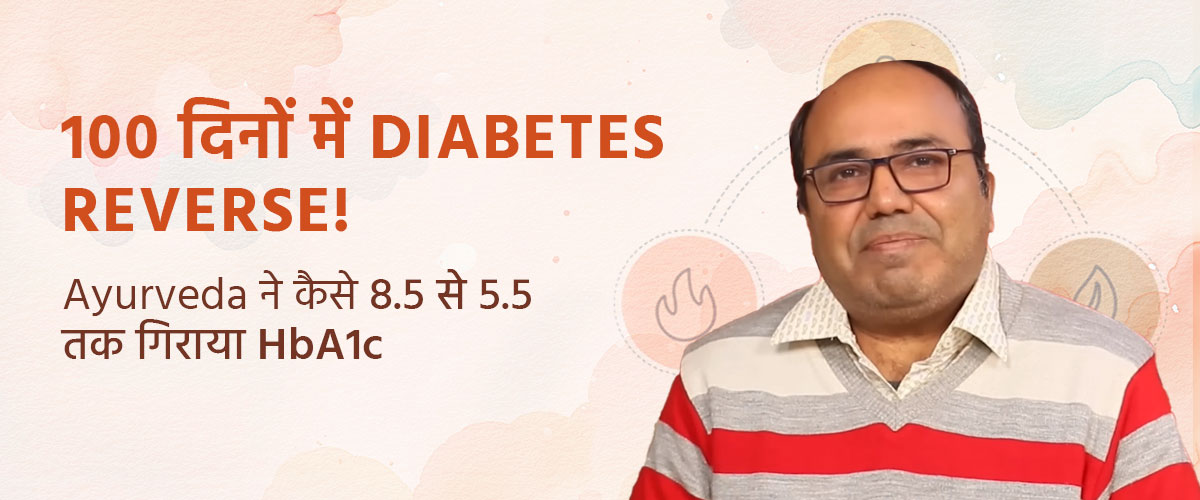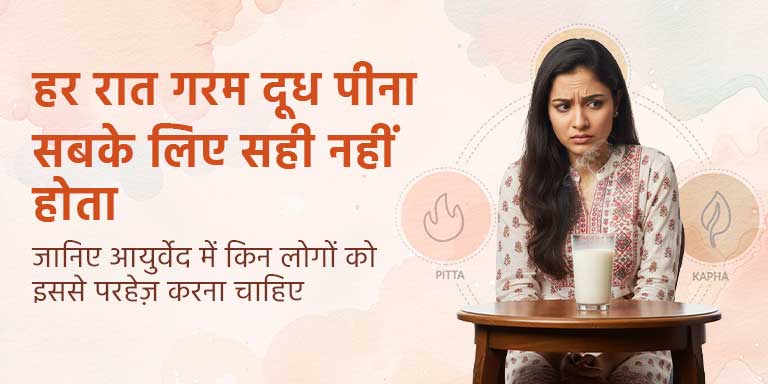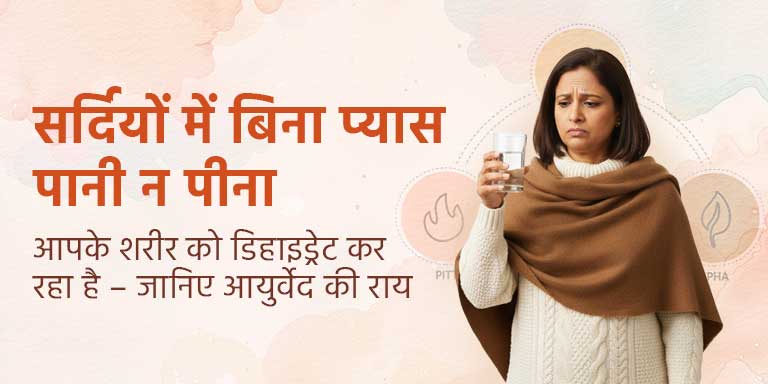Researchers consider nutritional imbalances as a possible cause of most diseases. Charak Samhita, an authentic textbook of Ayurveda states, Food is life. When taken properly, it enhances youthfulness and longevity. Improper intake of food creates toxins and ultimately takes away ones life. According to Ayurveda, the root cause of most diseases is improper food and one's lifestyle. In order to get healthy, it is important to treat the root cause. Hence one must learn about Ayurvedic cuisines and lifestyles. Ayurveda describes each individual as a unique constitution. For optimum physical, mental and spiritual health, one must eat according to his/her constitution. In addition, it is pertinent to follow a specific diet when one is suffering from a disease.
In the modern age, one often feels sensitive to foods and drinks one was able to tolerate. Intake of certain foods and food additives, such as caffeine, alcohol, chocolate, grain and dairy products, worsen the symptoms. Thus it is obvious that there exists a relation between food and disease."
In the Ayurvedic system of healing fifty percent of such diseases can be treated by adapting to Ayurvedic food and lifestyle. The food after digestion and assimilation into the body converts into "ojas" which represents immunity and vitality of a person. Excessive work, intense stress, overindulging habits, and sensory overload cause a gradual depletion of "ojas', which is often the root cause of disease. As a result of low 'ojas', people feel tired and exhausted especially at the end of the day or weekend. To get more energy, people resort to power bar, power shake, caffeine, alcohol, chocolate or high sugar snacks. All these food items further deplete the 'ojas' (vitality) as they just stimulate our system and not strengthen or relax it. The real energy boosters are fresh fruits, vegetables, lentils, beans, whole grains, and spices. Most people are ignorant of delicious recipes made out of these energy boosters, and therefore easily resort to junk food.
More than 70 percent of all degenerative, chronic diseases have their origin in inefficient digestion and assimilation of food. Cooking plays an important role in assimilation of food. Any food, including the energy boosters, will not be converted into energy (ojas) until it is fully digested and assimilated. In order to make it digestible, Ayurveda suggests cooking the food with spices to make various recipes. The spices stimulate the enzymes, and help in cleansing the colon. This facilitates the release of energy from complex carbohydrate, and increases the absorption of nutrients into the body. Spices also have a great medicinal value.
According to Ayurveda, kitchen is an in-house pharmacy. These Ayurvedic facts are now being confirmed via modern scientific research too. For example, Licorice has been shown to soothe bowel and kidney irritations, cleanse the colon, and strengthen the liver. It provides a mild laxative effect and expels mucous from the lungs, helping in the treatment of bronchitis, laryngitis, and sore throats especially when taken as a tea.
There are hundreds of tasty Ayurvedic cuisines, which have wonderful healing properties. In this age when there is so much concern about the possible side effects of prescription medications, turning to Ayurvedic cuisines is the simplest and easiest solution. Ayurvedic cuisines not only help in healing body, but also mind. While eating, our body absorbs physical nutrients present in the food along with the prana' (life energy) and subtle influences attached to it. Even the stages of processing (cooking) to which food is subjected affect its qualities. Food plays a significant role in physical, mental and spiritual well-being of a person.
Food has both a curative as well as preventive function. In a healthy person the food helps in rejuvenation. New cells are formed which protect our internal membranes/lining and skin. Ayurvedic cuisines help in retaining youthfulness and beauty. Ayurvedic cuisines are based on the concept of six tastes - sweet, sour, salty, bitter, pungent and astringent. In addition, Ayurvedic cuisines are sattvic which means calming and relaxing at mind level. They do not create an imbalance in the stomach. Disturbance in the stomach will lead to confusion in the mind and emotions too. Thus Ayurvedic cuisines nourish a person at emotional level and lead to a blissful life.
Recipes made from bitter gourd (karela) and fenugreek leaves or seeds have been proven to help the cells release more insulin into the blood and thus help in treating diabetes. A sweet pudding, made by cooking rice with milk and medicated with saffron, resins and dates, has been seen to relieve the mental stress within minutes. Similarly a tea made from the bark of Arjuna tree (Latin name: Arjuna Terminalia) has been seen to lower cholesterol, clean the blocked arteries of heart, and strengthen its muscles.
People suffering from chronic diseases like diabetes, heart diseases, mental stress and many other disease should consider turning to Ayurveda. Due to restricted diet, they can not enjoy various recipes, and often become depressed. Ayurvedic cuisines are the perfect solution for such people. The recipes are not only delicious, but also have healing properties. So one can savor the taste, and treat the disease at the same time. Thousands of people have been benefited from such recipes in India.



.jpeg)




























